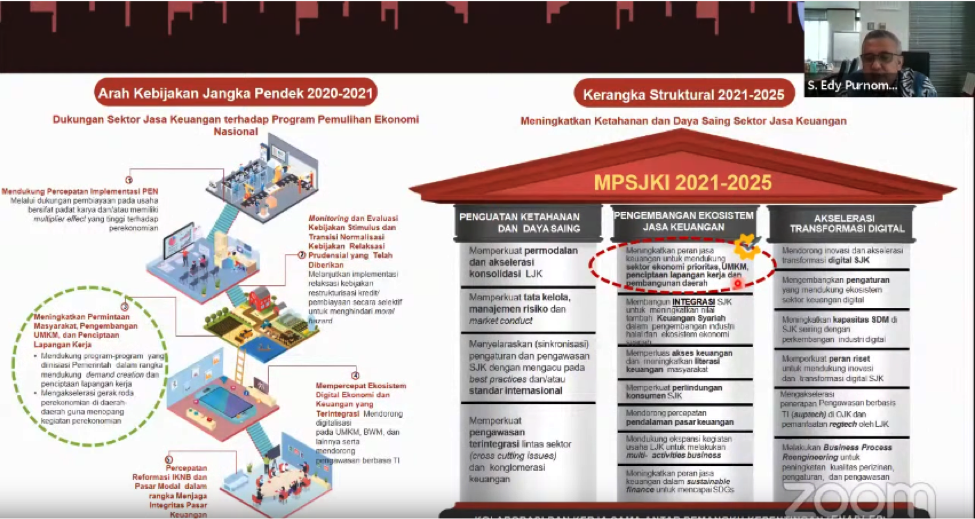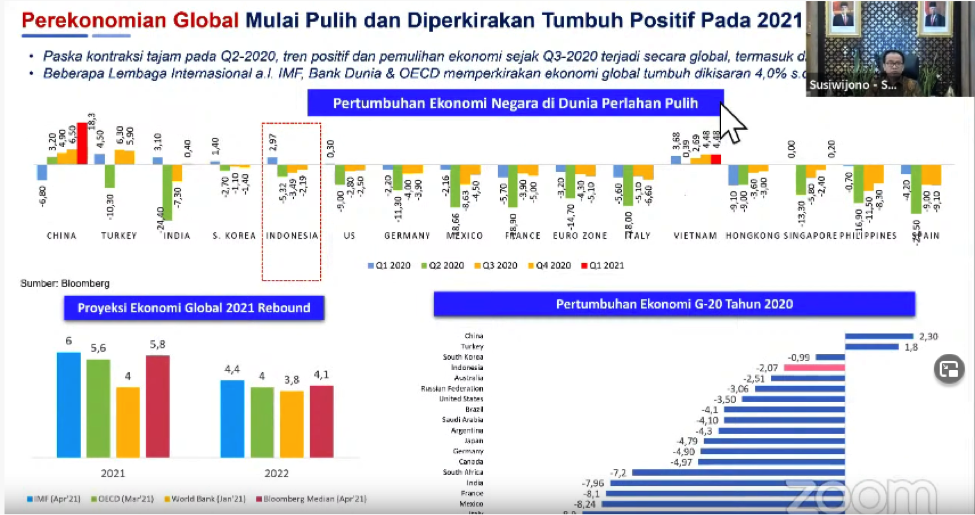Small Medium Enterprises (SMEs) is a sector that has been severely affected by Covid-19. One of the factors is that most SMEs are still conducting their business offline. Out of 13 million SMEs in Indonesia, only 13 percent of them have adopted digitalization.
The Secretary to the Coordinating Ministry for Economic Affairs Susiwijono Meogiarso said that the government has supported SMEs in the context of national economic recovery. The government provides actual support for SMEs through the national economic recovery program (PEN). In 2021, the budget for this program is IDR 699,43 trillion where IDR 200 trillion is allocated for SMEs and corporations. However, the realization in April only reaches 19.7 percent .
He added that some main programs within PEN for SMEs comprise interest subsidy, productive assistance for micro-businesses, and guarantees related to the placement of funds for bank loan restructuring for the SMEs. “The expectation is that through PEN’ program SMEs can recover during and after the pandemic,” Susiwijono highlighted in a webinar held by the School of Business and Management (SBM) of ITB collaborating with Alika Communication titled “Economic recovery for the national SME sector“, Wednesday (28/4/2021).
The webinar was attended by experts from various backgrounds namely the Secretary to the Coordinating Ministry for Economic Affairs Susiwijono Meogiarso, OJK Deputy Commissioner for Banking III Slamet Edy Purnomo, a Lecturer of MBA ITB Erman Sumirat, an Economist of INDEF Bhima Yudhistria, and the CEO & Founder of Jago Coffee Yoshua Tanu.
Furthermore, Slamet Edy Purnomo, OJK Deputy Commissioner for Banking III, proposed three things that the government can use to develop SMEs in Indonesia. First, the government can expand the definition of SMEs by increasing the total facilities/ceilings and classification of SMEs, then encouraging the development of SME products at each commercial bank in Indonesia, and the last one is to continue the policy program for loan interest subsidies, guarantees, and incubation programs.
The role of academics
Director of MBA ITB Yunieta Anny Nainggolan, Ph.D. said, amid the pandemic, SMEs need funding, working capital, while they cannot pay interest that is quite expensive and requires extra time to pay. She hoped, through this webinar, participants can get some information about the realization of the government budget in helping SMEs and knowing about future challenges.
Erman Suminat added, campuses also play an important role to help SMEs in Indonesia. “Campus involvements are, among others, being collaborator, facilitator, communicator, inventor, science techno part, platform and digitalization designing, advisory, and assistance. SMEs will be involved in campus by utilizing the technology science part,” said Erman Suminat who is an SBM ITB lecturer.
Furthermore, Bhima Yudhistria, an economist from INDEF explained his recommendation from a fiscal and monetary point of view to help the recovery of SMEs. For instance, the government can enlarge the SMEs’ working capital assistance and push to upgrade the crowdfunding securities platform (SCF). Then, from the SMEs side, the CEO & Founder of Jago Coffee Yoshua Tanu thought that we need to advance the SMEs in Indonesia, among other things, by leveraging digitization.
This webinar was closed by Subiakto Sukarno, a Lecturer of SBM ITB, who emphasized that we need to help the SMEs due to their contribution to Indonesia’s economy.






